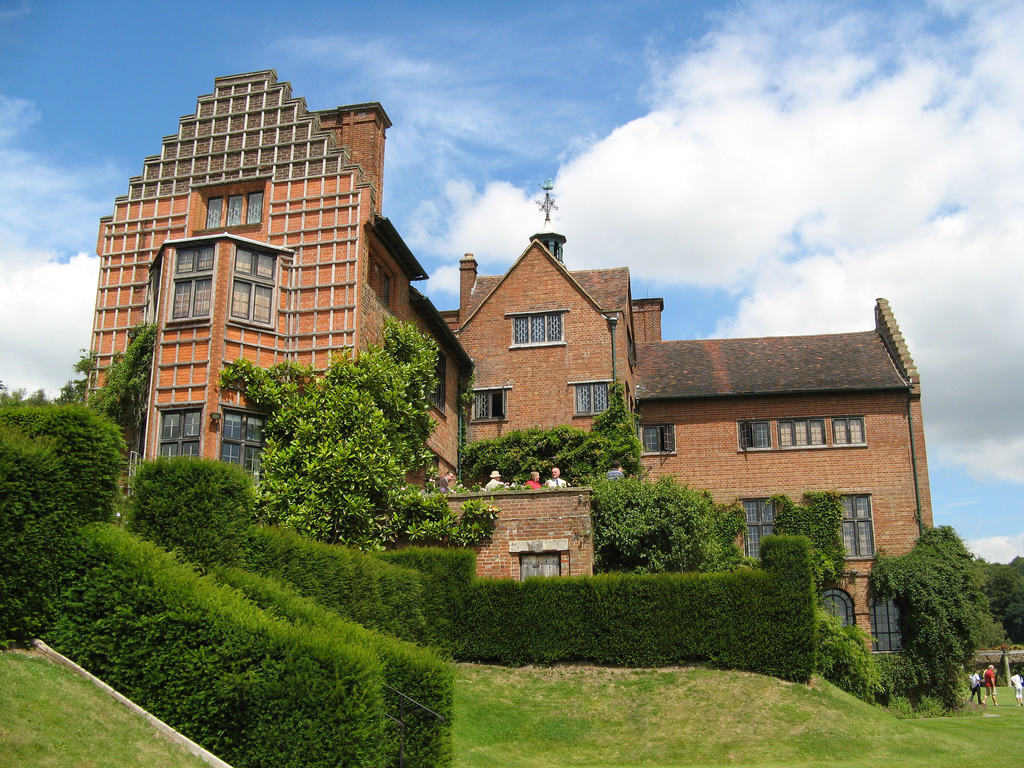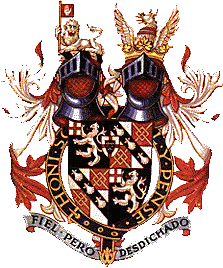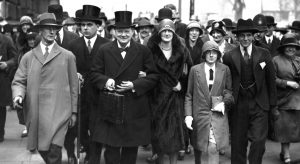
Reference
Winston, Churchill and Me – a memoir of childhood 1944-1950

Chartwell, the Churchills home in the Kent countryside
September 13, 2017
An excerpt from Winston, Churchill and Me. Get your copy at Amazon.com
AUGUST 1949 (first visit)
Someone in a maid’s uniform took me up a flight of stairs to a light and spacious drawing room. Mrs Pamela Churchill, Winston’s mother, sat at one end of a long white sofa. She wore a deep blue dress made from a silky material that rustled as she moved. Winston was there too, sitting on the floor, doing something with a comic. He looked exactly the same as he did at school: messy and awkward with his pencil, he made funny noises through his nose when he breathed. His mother was beautiful, really beautiful, calm and poised, smoking a cigarette. “You must be Jonathan,” she said. And then, quite shortly after that “The car will be here very soon”.
And in minutes, Winston and I were handing our little-packed bags over to Penelope who was, she told us, Mrs Churchill’s private secretary. She clearly wasn’t going to be driving the big black car – the chauffeur would be doing that – but she would be sitting in the back with us and that would give her a chance to tell us about the arrangements for our visit.
These, she told us, were perfectly straightforward. “You will be sleeping not in Chartwell Manor itself, but in Orchard Cottage – you know, Winston, that’s the one at the bottom of the long sloping orchard at the back of the house. Winston, do you remember Grace Hamblin? Well, she’s living there at the moment, and she will make you comfortable, wake you up in the morning and give you your breakfast. You will then have the rest of the morning to yourselves, to play or do whatever you want, but you must be sure to leave time to clean yourselves up and get to Chartwell ready to join the family for lunch at 12.45pm sharp. Has either of you got a watch? Oh, and Mrs Soames, your Aunt Mary, will be coming over for lunch tomorrow and probably on other days during your visit. Anything you want to ask about any of that ?”

2025 International Churchill Conference
I felt it was important to listen carefully to Penelope’s talk, even though I didn’t know the people or the places she was talking about. When she had finished I went back to my study of the amazing car we were driving in. It was one of those black ministerial-style cars with a partition separating the driver from the passengers in the back. A sliding glass panel was positioned just above seat height on top of the partition so that passengers could if they wanted to do so, speak to the driver. Just by the handles for opening the rear doors two little seats, one each side were folded up into the leather fabric covering the robust partition. These were perfect for Winston and me. We could wiggle round, look through the glass panel and watch not only the road, the oncoming traffic, but the dials on the dashboard. And on the speedo – what ! – 60 miles per hour! It seemed incredible – it felt as if we were doing about 25 mph, not 60. I had never travelled at 60 mph in my life. This was hugely exciting, and I must have believed that it deserved most, if not all of my attention. I would just stick close to Winston when we got to Chartwell: he would know what the arrangements meant, who everyone was, where to go and what we had to do. I would stick close to him.
My first impressions of Chartwell were dominated by Mrs Churchill, who exhibited the most delightful open, cheerful and caring disposition in all her dealings, not only with her grandson but with me too. She made it seem as if she had oodles of time for everyone. She appeared to sail through the day with a grace and composure that effectively masked the enormous amount of planning which the running of two very visible households – one here in the Kent countryside, the other in Knightsbridge – entailed. In the summer of 1949 Mr Churchill was a mere six months away from a general election; he was leader of the Conservative Party in Opposition; he was seventy-four years old, and while the war must have sapped some of his physical strength, his mind was still sharp : he was still a stylish and prolific writer, still a devastating and witty conversationalist, now focused upon winning back the people’s mandate and persuading what he still regarded as a fickle electorate that the country desperately needed a Conservative approach to domestic, economic and foreign affairs.
It was difficult for us, for Winston and me, not to get caught up in the excitements involved in preparing for a general election, despite the fact that our life at Chartwell – the comforting and familiar routines of lunch then going for a walk or playing in the garden, then tea, then some reading, then back to Orchard Cottage for bath, a light supper provided by Grace and then bed – was structured to discourage over-stimulated behaviours of any kind. One lunchtime during my first visit we boys were told that there was to be a special event happening in the house that afternoon: Mr Churchill was going to give a live broadcast to the nation and he was going to deliver his speech into the BBC microphone in his painting studio on the ground floor. If we agreed to be very good indeed, and absolutely silent meaning no sound at all we could sit quietly in the studio and watch while he gave the speech. It would be a rousing speech, and we were not to clap or cheer or stamp our feet or anything like that. We were to make no sound AT ALL. Was that perfectly understood?
It was. And into Mr Churchill’s painting studio we went. I found it fascinating to watch the process of testing and checking voice levels, trial runs, a red light changing to green and all the paraphernalia of cables and the technology that went with a live broadcast. Mr Churchill appeared so relaxed, so jolly and chatty before beginning his broadcast, quite undaunted by the prospect of his imminent performance, not nervous at all. And then I found, when the green light went on and he began his speech, that I didn’t have the foggiest idea what he was talking about.
The painting studio where the broadcast was taking place was a huge but beautifully proportioned room looking down the garden and across the valley to the woods beyond. Normally this room was out of bounds to us boys, so this was the first time I had been allowed inside the studio. Winston and I were positioned about ten paces away from where Mr Churchill was sitting in front of the microphone. We were about halfway down the length of the room and on the wall facing us were masses of Mr Churchill’s paintings. At that time Mr Churchill was still using the room for painting and hanging his finished artworks and now that I had given up listening to the speech he was broadcasting, I became transfixed by the paintings on the wall. It was fun to identify places he had painted in the very gardens here at Chartwell where we had played and mucked about: the swimming pool, the fishpond and the lake in particular. I took a special fancy to his painting of black swans on the lake, and not necessarily for aesthetic reasons. The previous day – I rather shudder to remember this – Winston and I had been stalking the black swans to see how close we could get to them without getting our feet wet when Winston announced he needed to do a poo. Rather than trek back to Orchard Cottage, he reckoned that the reeds and bulrushes where we were stalking would provide adequate screening from the house that he was going to use leaves for loo paper and do a poo right there by the lakeside. I was to keep lookout and let him know if anyone was coming. Not much fun for me, really – my genteel upbringing hadn’t prepared me for pooing al fresco among bulrushes, so I felt rather left out of whatever fun Winston might be having. But that was the kind of child I was: a bit anxious perhaps, a bit conformist, and woefully out of touch with my wild, adventurous side. I was much more comfortable when Winston agreed to play sporty games – like catching tennis balls or playing French cricket or croquet etc – than when he regressed, as was his custom, to being a daredevil or playing the fool.
Republished by kind permission of Jonathan Dudley. ©2017
Subscribe
WANT MORE?
Get the Churchill Bulletin delivered to your inbox once a month.





